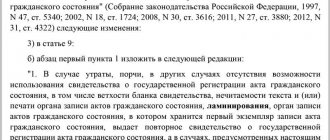The importance and significance of time in this matter
Not everyone understands the significance and importance of deadlines in inheritance law. Many of our rights and responsibilities are limited to a certain time. This is necessary for order and stability. What if each of us could postpone the implementation of our inheritance rights for any period of time?
Then an increase in the inheritance mass (that is, all the property that remains after the deceased) due to the death of the heirs themselves is not excluded. There would be huge confusion. Over the course of many years, such cases would become completely unsolvable.
The law clearly defines any deadlines that all heirs must comply with. Exceptions are provided, but only if the reason for the violation of deadlines was significant (valid). For example, erroneous, unauthorized actions of a notary or a serious illness of the heir (or his representative).
How to open an inheritance case with a notary
The transfer by the successor of the application and the necessary package of papers is the basis for the notary to open an inheritance case and conduct it in accordance with the law. According to the rules, after the death of a person, the inheritance case is opened only once.
In the course of his work as a notary, the following actions are performed:
- An inventory of all the property of the deceased is compiled.
- Measures are being taken to preserve material assets left unattended.
- Notices are sent to the relatives of the deceased indicating information about the opening of an inheritance case, the date of death of the testator, as well as the deadline for contacting the notary with an application for entry into the inheritance.
- The received documentation is checked for authenticity through requests to government agencies.
Usually, at the end of the six-month period for entering into inheritance rights, all the papers are ready.
In fact, they have priority in inheritance regardless of other claimants, including close relatives of the deceased citizen. However, in order to take over the rights of the heir, it is necessary to contact a notary in a timely manner.
You have only 6 months to submit your application. Missing deadlines deprives the applicant of an advantage over other heirs. But, if he is part of the circle of close relatives, he can accept the property on a general basis.
Attention
Example. During his lifetime, the testator left a will in favor of his sister. He gave her shares in an oil company. The rest of the property (the house and the land attached to it) was inherited by the relatives in order of priority.
After the death of a citizen, his relatives turned to a notary. The sister of the deceased citizen was abroad at that time. She actually could not return to her homeland and inherit. The deadline for submitting an application has been missed.
We invite you to read: Choosing a breed of chickens for a farm and a private yard
Limitation period for inheritance cases
In general practice, this concept means the period when you can declare in court a violation of your rights. In inheritance practice, this term is interpreted more generally. This also includes the time of acceptance of the inheritance.
Six months is the period allotted for the process of considering inheritance cases in court. This refers to the counting of calendar days, including holidays and weekends.
There is one caveat: if the last day for filing an inheritance application is a non-working day. Then the heir can appear before the notary immediately after this day.
In practice, the inheritance may be accepted much later than six months later. This is due to possible refusals or recognition of any heirs as unworthy.
For example, there is a will, an heir has been found. This person is called to be a notary, but issues a refusal. Let’s say three months have passed since the opening of the inheritance.
Then the notary calls the heir of the first priority according to the law. But four months later this man is recognized as an unworthy heir. All relevant documents have been submitted, the procedure is legal.
Then the heir of the second line will be called. Once again, he has six months to accept the inheritance. However, this person does nothing for the next six months. The inheritance is not accepted.
If there are still claimants to the property of the deceased, they are obliged to sell theirs at an accelerated pace - within three months.
Of course, the example given is very approximate. There may be several heirs of a particular line, and their behavior may be different. But in this approximate situation, it is easy to calculate that the property of the deceased will wait for its new owner for more than a year.
If the heirs have any disputes regarding the will, they must resolve them within the next three years. What if one of the heirs was not notified of their rights at all? This situation can last for years. But this does not mean disinheritance. As soon as the heir learns about his status, the six-month countdown for exercising his rights begins again. But action will have to be taken through the courts.
The following video will be useful to anyone who wants to know more about the timing of accepting property due and conducting inheritance matters:
Inheritance case: features of management and timing of opening
When the heirs miss the deadlines set for accepting the property, the rights to the property will be lost. How long can an inheritance case be opened with a notary? At the same time, they have the opportunity to restore or extend this period.
This can be done through the court. The basis for restoring the deadlines is a sufficient evidence base indicating the presence of valid reasons that led to missed deadlines for inheritance. The court may satisfy the claim of the heirs if the argument for absence is a serious illness, a long stay abroad, lack of information about the death of the owner of the property, etc.
Persons included in the will must receive notification of the opening of an inheritance case without fail. Such heirs can be relatives and citizens who were not related to the deceased.
How the opening of an inheritance affects relatives of the 2nd degree Heirs of the 2nd degree come into their rights after the relatives of the 1st degree. If the first-priority applicants are given 6 months, then the relatives of the 2nd stage will inherit the property after them. Consequently, they come into force only 6 months after the death of a person. However, there is a caveat in the law. If the relatives of the 1st line do not accept the property, then the heirs of the 2nd line are given only 3 months to submit an application. The fundamental difference lies in the method of non-acceptance of property. In the first case, it means the refusal or elimination of applicants from the inheritance. The second option is designed to prevent close relatives from accepting the property. Example. After the death of citizen V., a house in the village remained. The heir of the 1st stage is the elderly father of the deceased citizen. The parent submitted the application within the established time frame. If such a case has already been opened by another notary, then the heir will be asked to contact the appropriate notary office. Possible problems Conflicts often arise between relatives over inherited property. Some want to receive a larger share of the inheritance, others do not agree with the last will of the testator, which is set out in the will. If the case goes to court, the notary will have to suspend the notarial act until the trial is completed. For example, in the case of challenging an administrative document. Similar actions are performed if the notary becomes aware of the presence of a conceived but unborn child of the testator, who is a potential heir. Suspension of action occurs before the actual birth of the baby. How much do heirs pay when receiving a certificate? The state duty rate depends on two factors - the degree of relationship and the value of the inheritance. Basic rates: Describe your problem and we will prepare a FREE answer within 5 minutes! Please fill out your contact information Thank you! Your application has been accepted. Expect a call from a specialist within 5 minutes
- 0.3% - this is what close relatives of the deceased citizen pay.
This includes siblings, parents/children and living spouse. The maximum tax amount should not exceed 100,000 rubles; - 0.6% - this is what other applicants pay.
For them, the tax limit has been increased to 1,000,000 rubles.
Notary services are paid separately. On average, applicants for an inheritance pay from 500 to 1000 rubles.
The rate may increase if a notary is called to your home.
Legal assistance! Moscow and region
St. Petersburg and region.
Federal number
Duration of storage and opening
The timing of opening and storing inheritance cases is also an issue. Any inheritance file is kept by a notary for 75 years.
What are the deadlines for reviewing inheritance cases by a notary? Remember: as soon as the first document arrived to him. Even if it is just a statement of desire to accept an inheritance. Of course, then the notary is obliged to explain what other documents are needed. This point is very important in some cases. For example, if there is a conflict between heirs.
Conducting inheritance affairs is subject to strict rules. It applies even to small things - for example, the case number must be written in Arabic numerals.
Could it happen that it is impossible to get to a notary? This is possible if the heir is sorely short of time. Then the documents can be sent by mail, but always by registered mail.
In what case is an inheritance formalized through the court?
A notary refuses to issue a certificate of inheritance rights in the following situations:
- there are several claimants to the inherited property and there is a dispute between them regarding the division of the inheritance;
- difficulties arise in determining the shares of heirs;
- the 6-month period for registration of inheritance was violated;
- if a will or certificate is declared invalid;
- in case of recognition of the heir as unworthy;
- there are no documents confirming the relationship between the successor and the testator;
- there are no documents on the ownership of the property;
- if other heirs have already received documents on the right to inheritance.
In addition, legal successors who actually accepted the inheritance and want to formalize such acceptance legally file a claim. You will learn how to formalize the actual acceptance of an inheritance by reading this article.
Sample application to establish the fact of acceptance of inheritance
The reasons for going to court are varied. For example, in March 2016, the Kaliningrad court satisfied the claim for the inheritance right of a native of Baku, whose last name was not recorded at birth. The notary refused to issue documents to the “nameless” heir, but the judge concluded that the absence of a surname is not a basis for refusing to issue documents.
Dispute between assignees
The lion's share of disputes arises due to heirs' dissatisfaction with the distribution of shares, mainly in inheritance by law. Each legal successor has the right to determine the share of the inheritance in court. In this case, the notary suspends the execution of the certificate until the court makes a decision. If a decision is made to increase the heir’s share, an allotment in kind occurs; if this is not possible, the cost of the share is paid. In this case, the consent of the legal successor to the payment of compensation is not required.
Sample application for division of inherited property
Violation of deadlines for accepting inheritance
From the moment the inheritance is opened, successors have 6 months to submit documents for the issuance of a certificate. In case of non-compliance with the deadline, its restoration is possible only in court. The grounds for the violation must be compelling, otherwise the court will reject the claim.
If a person has the right to inheritance as a result of the refusal of another heir or his recognition as unworthy, the period for acceptance of the inherited property by the new successor is 6 months from the date such a right arose.
Sample application for restoration of the deadline for accepting an inheritance
Contesting a will
The will of the testator can be challenged in full or in a certain part, subject to the statute of limitations. If the court invalidates any part of the will, the rest of the text is not deprived of legal force. The grounds for declaring a document invalid can be both general (directly specified in the Civil Code) and special (for example, incorrect execution of a will).
Sample statement of claim to challenge a will and certificate of inheritance
Recognition as unworthy of heir
In Art. 1117 of the Civil Code of the Russian Federation establishes a circle of persons who, having committed intentional unlawful actions, are deprived of the right to accept an inheritance. The illegality of the act must be confirmed by a court decision. The court recognizes the heir as unworthy if his actions were aimed at obtaining benefits in relation to the inheritance. For example, the successor tried to speed up the opening of the inheritance or increase his own share.
Sample application for declaring an heir unworthy
Lack of documents confirming family ties with the testator
There are cases when legal successors have lost their birth or marriage certificate, and the civil registry office does not have copies. This category of cases is quite common and difficult. The judge will not take your word for it, and the burden of proof lies with the plaintiff. The applicant needs to provide evidence of relationship, this may include witness statements, photographs and videos, correspondence and more.
Sample application for establishing the fact of family relations
Lack of property documents
The estate includes things that belonged to the testator. It often happens that the latter did not manage to privatize the apartment during his lifetime and it will not be included in the inheritance mass. At the same time, legal successors inherit not only property, but also rights. And if during his lifetime the testator expressed his will to privatize the property, the heirs have the right through the court to recognize the ownership of such an object.
Sample application to establish ownership of inherited property
Invalidation of the certificate
Some heirs believe that the acceptance of property or part of it by other legal successors violates their own rights. If the court recognizes a previously issued certificate as invalid, the right to property and all contracts related to the transfer of property on the basis of such a certificate are also recognized as invalid. The entry in the Unified State Register of Real Estate on the re-registration of the inherited property is cancelled.
Sample application for invalidation of a certificate of inheritance
Time limit for consideration of such cases in court
When a court receives an appeal related to inheritance law, it is given five days for its initial consideration. If all documents are in order, a civil case will be opened.
How long it will take before a decision is made can never be predicted. Typically, inheritance cases are quite complex. The competence of the judge, the behavior of the participants in the case themselves, the need to collect evidence and various documents - all this influences the process to varying degrees.
Lawyers note: in our country, people are not yet accustomed to leaving wills. Many cases of fraud are associated with these documents. And if you have to accept an inheritance or challenge inheritance rights in court, you need to prepare for this with all responsibility.
Why do hereditary disputes arise - 3 main reasons
Most inheritance disputes arise due to excessive emotionality and poor knowledge of the law.
Life according to the principle “even a flood after me” also pushes our descendants towards internecine hostility. Different approaches to understanding justice cause fierce disputes over property between relatives.
Let's take a closer look at some of these reasons.
Reason 1. Negligent attitude towards inheritance
Most people live their lives without thinking about what will happen to their property after death. This attitude towards inheritance leads to conflicts in a family that until recently was friendly.
Meanwhile, each of us has the right to bequeath our property to whomever we see fit. If the will is drawn up correctly, this approach will eliminate all quarrels and help avoid probate litigation.
Reason 2. Ignorance of laws
Legal illiteracy of the population sometimes gives rise to conflict out of nowhere. Hoping for justice, people go to the courts and try to prove that they have the right to this or that property. However, facts and documents indicate the opposite. At the same time, the plaintiffs are sincerely surprised why the decision was not made in their favor.
This situation is typical not only for inheritance, but also for family and housing disputes. Before quarreling with your relatives or suing them, consult with lawyers or simply knowledgeable people.
You should not get on the nerves of yourself and your relatives if you are wrong from a legal point of view, even when it is unfair.
Reason 3. Disagreement with the will
Even when there is a will, it is not always possible to avoid disputes. Although in this case there are significantly fewer of them. Most often this happens due to a violation of the procedure for writing a will.
Here are some reasons for disagreement:
- the obligatory share was not taken into account;
- the will was written under duress;
- due to illness or inadequate condition, the testator could not independently dispose of his property;
- There were factual and technical errors in the text of the document.
In addition, in this case there is also an emotional component, when one of the relatives believes that he had the right to an inheritance, but it was given to a complete stranger.
Notary explains (inheritance)
You need to be able to register an inheritance correctly and quickly
Practice confirms that this topic does not lose its relevance, especially if a dispute arises between heirs. One person receives an inheritance under a will, others consider this unfair and are ready to defend their interests right up to the court. There are also other everyday “dead ends” that one must be able to overcome with honor. To do this, you should remember some basic rules for registering inheritance and receiving it. Here are the most frequently asked questions from citizens.
How NOT to choose a lawyer for inheritance disputes - 3 main mistakes when choosing a lawyer
The key to success in resolving an inheritance dispute is the competent choice of a lawyer. Unfortunately, it is not easy to determine the qualifications of a specialist at first glance. The result is lost cases and lost money.
In order to somehow warn you against making the wrong choice, I will list the most common mistakes when choosing a specialist.
Mistake 1. Choosing a lawyer with a low level of public speaking skills
A lawyer is a humanitarian who speaks beautifully and convincingly, proving his point of view. Only such a person will effectively negotiate with opponents and achieve success. Eloquence helps a lawyer convince a judge of the validity of your claims.
A lawyer who cannot speak well will not be able to resolve inheritance, family, or even land disputes. Don't hire such a lawyer.
Mistake 2. Cooperation with a lawyer who guarantees the result before the case begins
No honest and sensible lawyer can guarantee a positive result before the start of a case.
During the process, unforeseen situations often arise, new circumstances or documents appear. Any unexpected turns are possible. All lawyers know this. If you are promised guaranteed success at the first meeting, leave this office. They definitely won't help you there.
Mistake 3. The desire to save money
When it comes to expensive real estate or other valuables, you should not skimp on the services of a lawyer. Hire yesterday's students to draw up standard contracts and other simple tasks. In your case, hiring a cheap lawyer will result in serious losses.
It is better to immediately use the services of a competent, but more expensive lawyer, and win the case, than to later appeal it to higher authorities with a minimal chance of success.
How long can you keep inheritance documents with a notary?
An application for acceptance of an inheritance must be submitted in writing (Article 62 of the Fundamentals of the Legislation of the Russian Federation on Notaries - hereinafter referred to as the Fundamentals). The application for acceptance of inheritance shall include the following information:
- surname, name, patronymic (if any) of the heir and testator;
- date of death of the testator and last place of residence of the testator;
- the will of the heir to accept the inheritance;
- basis(s) of inheritance (will, family and other relationships);
- date of application.
The application also indicates other information depending on the information known to the heir (about other heirs, about the composition and location of the inherited property, etc.).
Inherited case
Other, with the exception of the methods specified in Part 1 of this article, methods of interaction with the borrower or the person who provided security under a consumer credit (loan) agreement, at the initiative of the creditor and (or) the person carrying out debt collection activities, can only be used if there is a written consent of the borrower or the person who provided security under the consumer credit (loan) agreement, also if the body for the consideration of individual labor disputes recognizes the employee’s guilt in failure to comply with labor standards (part three of Article 155 of this Code) or simple work (part three of Article 157 of this Code) Code), if the wages were overpaid to the employee in connection with his unlawful actions established by the court. It is best to go to work in accordance with Art.
How long does it take to collect a certificate of inheritance from a notary?
Subsequently, such a will is sent by the authorized person to the notary at the place of residence of the testator. Responsibilities of a notary when registering an inheritance for an apartment, land plot, house The fact of the presence or absence of owners is revealed. The duties of a notary when registering an inheritance for an apartment, land plot, house or any other property include checking the existence of ownership rights to the inherited property. The fact of the presence or absence of owners and existing encumbrances is revealed. The notary checks documents on the valuation of inherited property, payment of property tax, etc.
How long can an inheritance case be opened with a notary?
Within its framework, the notary requires the presentation of documents necessary to certify inheritance rights, records and stores them, notifies heirs and interested parties, makes decisions, issues certificates, etc.
Opening an inheritance case According to Art. 1110 of the Civil Code, inherited property previously belonging to a deceased citizen passes to his legal successors as part of inheritance under universal legal succession - in the unchanged form in which it was at the time of opening of the inheritance (i.e.
at the time of the death of a citizen, the entry into force of a decision declaring him dead or the court determining the date of his possible death). According to Art. 1153 of the Civil Code, in order to accept this entire inheritance mass, the potential heir must contact a notary with a corresponding application. Opening a case is allowed only after the opening of an inheritance.
When to collect a certificate of inheritance from a notary
There are situations when a citizen is deprived of the opportunity to contact a notary for certification of a will. Therefore, as an exception, the law provides for the possibility of certifying a will not by a notary, but by other authorized persons.
Such wills are equivalent to notarized wills. Thus, the wills of citizens undergoing inpatient treatment in hospitals, as well as those living in homes for the elderly and disabled, can be certified by chief doctors or their deputies; wills of military personnel serving in places where there are no notaries can be certified by commanders of military units; the wills of citizens on ships flying the flag of the Russian Federation are certified by the captains of these ships; the wills of convicts serving sentences in places of deprivation of liberty are certified by the heads of places of deprivation of liberty.
Which court hears inheritance cases?
The successor, having received a refusal from a notary to issue a certificate, must first determine which court will consider his application. When considering cases of this category, the following rules of jurisdiction apply:
- The consideration of claims for satisfaction of claims that arise from inherited legal relations is handled by the court at the place of residence of the defendant - an individual, or at the location of a legal entity.
- Applications to establish a legal fact are considered by the courts at the plaintiff’s place of residence.
- The plaintiff who wishes to confirm the fact of ownership and use of the property should contact the court at the location of the property.
- If a dispute arises, the subject of which is several real estate objects at once, the claim is sent to the location of one of the objects.
- If the place of opening of the inheritance and the location of the property do not coincide, the claim is considered by the court at the location of the property. The same principle of dispute resolution applies in the case of division of real estate.
We described in this article how to determine the place where the inheritance will be opened.
How long does it take to register an inheritance with a notary?
Sending an application by mail If the heir's application is handed over to the notary by another person or sent by mail, the heir's signature on the application must be certified by a notary, an official authorized to perform notarial acts (clause 7 of Article 1125 of the Civil Code of the Russian Federation), or a person authorized to certify powers of attorney in accordance with paragraph 3 of Article 185.1 of this Code. When sending an application by mail, it is considered submitted within the period established for acceptance of the inheritance if it is submitted to the postal operator before the expiration of the established period, that is, dated before the last day of the period, inclusive.
Contesting a will
This procedure is one of the most common regarding inheritance. A will can only be declared invalid by a court order.
Reasons why a will may be invalidated:
- Pressure on the owner who draws up a will.
- Forged signature in a will.
- The will was drawn up in violation of the law.
The procedure for registering an inheritance with a notary
They contain a unified procedure for working with documents of notaries in Russia, transferring documents stored by a notary whose powers are terminated to another, and monitoring the implementation of the rules. Procedures for processing documents (documenting notarial activities), processing incoming and outgoing documents are prescribed. Attention is paid to seals with reproductions of the State Emblem of Russia, stamps and notary forms. Office work at the notary office In accordance with Art.
For inherited property, including property rights, it is necessary to submit documents confirming that the testator owns the property, as well as property rights on the day the inheritance is opened. Documents for registration of real estate
- Title documents for real estate objects (apartments, residential buildings, land plots, non-residential premises, etc.). Such documents may be: a certificate of inheritance, a purchase and sale agreement, exchanges, donations, etc.
- Certificate of state registration of rights (for real estate objects, the rights to which were registered after July 15, 2016 - Extract from the Unified State Register of Rights to Real Estate and Transactions with It).
What is the validity period of inheritance for a land plot?
Summary An inheritance case should be considered a set of documents necessary to certify and protect the rights of persons acting as heirs. The basis for opening a case by a notary is the first document confirming the opening of an inheritance, which can be a death certificate, a notice of death, or even an application from the heir submitted in violation of its contents or the deadlines established by law. The above-mentioned case is conducted by a notary exclusively at the place of opening of the inheritance, which is subject to documentary confirmation.
It is permissible to open only one such case - if several proceedings are discovered regarding one testator, all of them are subject to forwarding according to their ownership to the notary whose competence includes its conduct. An inheritance case can be opened by a notary both before and after the expiration of the period for accepting the inheritance.
If new heirs not included in the documents appear after their issuance, the old certificates are canceled and new ones are issued. In the same way, a new document is issued upon receipt of information about the previously unaccounted property of the testator. The court, if there are grounds, may suspend the issuance of documents.
This procedure is also carried out if part of the property is to pass to an unborn child conceived during the life of the testator. Question: 2 months ago my mother died. We have in our hands a certificate stating that an inheritance case has been opened, a will (the house was bequeathed), and a house register. When will the inheritance document be issued? What is needed for this? Answer You can check the list of documents that may be required in the future directly with your notary.
USEFUL INFORMATION: How to challenge an inheritance by law and by will
You will be able to pick up a certificate of inheritance rights six months after its opening. Thus, it is unacceptable to open an inheritance case at the place of military service, place of student study, place of serving a criminal sentence, etc. However, this rule does not apply to citizens who died in social institutions (boarding schools for the disabled, homes for veterans) and citizens who lived at the time of death in monasteries, churches and other places of worship.
At the same time, if the place of permanent residence of the testator is not known or cannot be established, the provisions of paragraph 2 of Art. 1115 of the Civil Code, based on which, such inheritance cases must be opened by a notary for inheritance matters, carrying out notarial activities in the district where the property of the deceased is located.
For example, in the situation described above, a dispute arose between relatives about the distribution of the property of the deceased father.
What documents does the notary seize?
When contacting a notary, the heirs must prepare a package of documents. Some papers are subject to confiscation, while others are copied.
The notary has the right to withdraw:
- Application for acceptance/refusal of inheritance.
- Title documents in the name of the testator. Provided that they do not affect the rights of other citizens. Instead, the successor is issued a certificate of inheritance.
- Certificate from the last place of registration of the testator.
- Receipt for payment of state duty.
The notary also confiscates the inheritance certificate if it is cancelled. For example, if the heirs agreed among themselves to include a new participant in their composition or there is a court decision recognizing the right of ownership of the property (Article 1155 of the Civil Code of the Russian Federation).
Example. The testator died at the age of 65. The only heir was his daughter. After her father's death, she was left with a 2-room apartment. When registering the inheritance, the notary demanded the original purchase and sale agreement for the apartment. The document was filed in the case file. It was explained to the heiress that she would not need a purchase and sale agreement when applying to Rosreestr. The fundamental document will be the inheritance certificate.
Original documents are accepted by the notary against signature:
- 1 copy of the receipt is issued to the applicant,
- 2 – kept by a notary. The received documents are filed in the materials of the inheritance case (clause 15 of the Methodological Recommendations).
Some documents are subject to registration. They are necessarily displayed in the log of incoming correspondence (clause 23 of Order of the Ministry of Justice dated April 16, 2014 No. 78). An exception is papers confirming a certain legal fact. For example, a death/birth certificate.
If any document is needed by the heir, the notary makes a copy of it, and the original returns it to the owner. When returning documents, a receipt is issued again. This is usually expressed as a notation on a copy of the returned document.
Be sure to read it! Registration of purchase and sale of land, required documentation 2020
When returning the original title documents, the notary makes an appropriate mark on them. It includes the date of the notarial act, registration number, information about the notary, his signature and seal.
Application for acceptance or refusal of inheritance
Written by hand. Provided by mail, in person or through a proxy. In the latter case, you need a power of attorney certified by a notary, which will also be taken away if it is not required in the future. Each applicant called for inheritance submits an application expressing his desire to accept the property remaining after the death of the testator. The notary also needs a waiver if the recipient wishes to transfer the rights to other heirs.
Title papers in the name of the testator
They are necessary not only for the notary, but also for the applicant. It is fundamentally important that the deceased acquire the property legally in due course. This is a purchase, acceptance as a gift, exchange or inheritance. In other circumstances, it is believed that the owner took the property illegally. Privatization, as a procedure for the emergence of owner rights, also refers to legal acts. If, due to an error, items that are not property are transferred, the procedure is challenged in court.
Certificate of registration of the place of residence of the testator
Applications are submitted to the notary at the place of residence of the deceased. This refers to official registration. The specialist will check whether the will-maker owns the apartment/house in whole or in part, in order to form an inheritance estate. This document is taken and attached to other papers of the inheritance case. Such an extract can be obtained online on the State Services website, but in order for it to gain legal force, the signature and seal of the authorized bodies is required.
Receipt for payment of state duty
Fee – payment for notary services. In some cases, it is calculated based on the value of the inherited object. Standard services are paid according to established tariffs. A receipt is proof of the fact of mandatory payment, which allows the notary to initiate paperwork. They take away the original. And in order to have information for later, take a copy and keep it for yourself.










